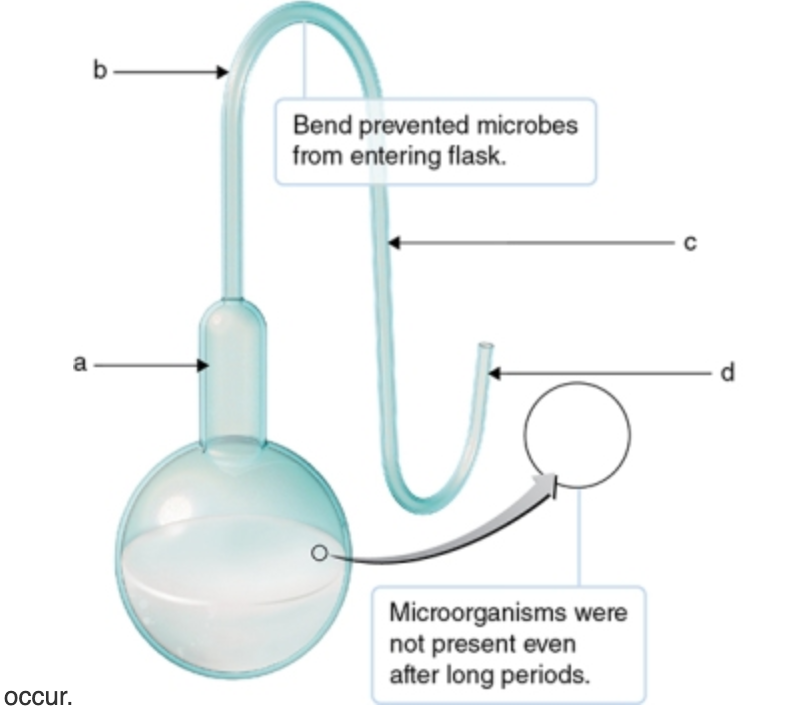Repeat Final questions
1/12
There's no tags or description
Looks like no tags are added yet.
Name | Mastery | Learn | Test | Matching | Spaced |
|---|
No study sessions yet.
13 Terms

Predict which scenarios would most likely produce growth/airborne microbial contamination of sterile beef broth if Pasteur's S-shaped neck flask were cut.
Scenario a: break near flask
Scenario b: break before the first curve
Scenario c: beak between the first and second curve in the S-shaped neck
Scenario d: break after the second curve in the S-shaped flask.
Answer: A, B
Which of the following statements are TRUE?
1. Electron carriers are located at ribosomes.
2. ATP is a common intermediate between catabolic and anabolic pathways.
3. ATP is used for long-term storage of energy and so is often found in storage granules.
4. Anaerobic organism can generate ATP via respiration.
5. ATP can be generated by the flow of protons across protein channels.
Answer: 2,4,5
What is defining about fermentation?
Answer: Anaerobic, regenerates NAD+ from NADH to allow continued glycolysis which produces ATP w/o O2 or electron transport chain (ETC).
what organism type has a carbon source of CO2 with inorganic molecules as energy source?
Answer: Chemoautotroph
Which of the structures is NOT a functionally analogous pair? (hint: compare structures outside of the cell wall)
fimbriae vs flagella
Ribosomes vs pili
cell wall vs flagella
Answer: Fimbriae vs flagella
*fimbriae aren’t for motility while flagella are
Ribosomes vs pili (protein synthesis vs adhesion),
cell wall vs flagella (support vs motility)
The enzyme used to create cDNA without introns AFTER an initial cDNA strand is transcribed from mRNA is called…
Answer: DNA polymerase?
One advantage of a viral vector over a plasmid vector is that: (review pg 248)
Answer: more efficient at delivering DNA to host cells?
If an F+, Cys+ cell recombines with an F-, Cys- cell, what might happen to the F-,Cys- cell?
Answer: becomes F+, Cys+ (might be just F+. Cys- since there wasn’t hfr mentioned)
During PCR, instead of using DNA polymerase from Thermus aquaticus, human DNA polymerase is used. Starting with 1 molecule of DNA, after 3 full cycles are completed (assume all other conditions remain the same), how many DNA molecules do you expect to see? *slightly reworded from exam 2 question
Answer: 8 DNA molecules
*After 3 cycles of PCR, the expected yield from one starting molecule is 2^3, resulting in 8 DNA molecules.
There have been several changes in taxonomy over the years. Who proposed the current taxonomy described in your text with three Domains (1978):
Answer: Carl Woese
Use of culture independent techniques like rRNA sequencing and FISH increased our understanding of microbial diversity. Why should microbiologists still attempt to grow new species?
Answer: To study physiology, metabolism, and interactions of organisms
In specialized transduction, what may occur?
Answer: Specific bacterial genes near the prophase insertion site are transferred to another bacterium
In what ways has PrPSc NOT been transmitted?
Answer: Airborne? i put genetic which im pretty sure is right
*Answer: PrPSc has not been transmitted through airborne mechanisms or direct contact.